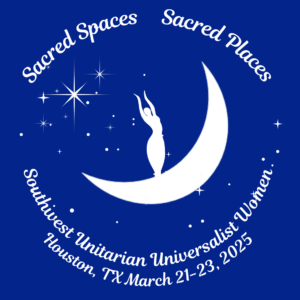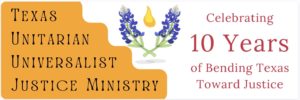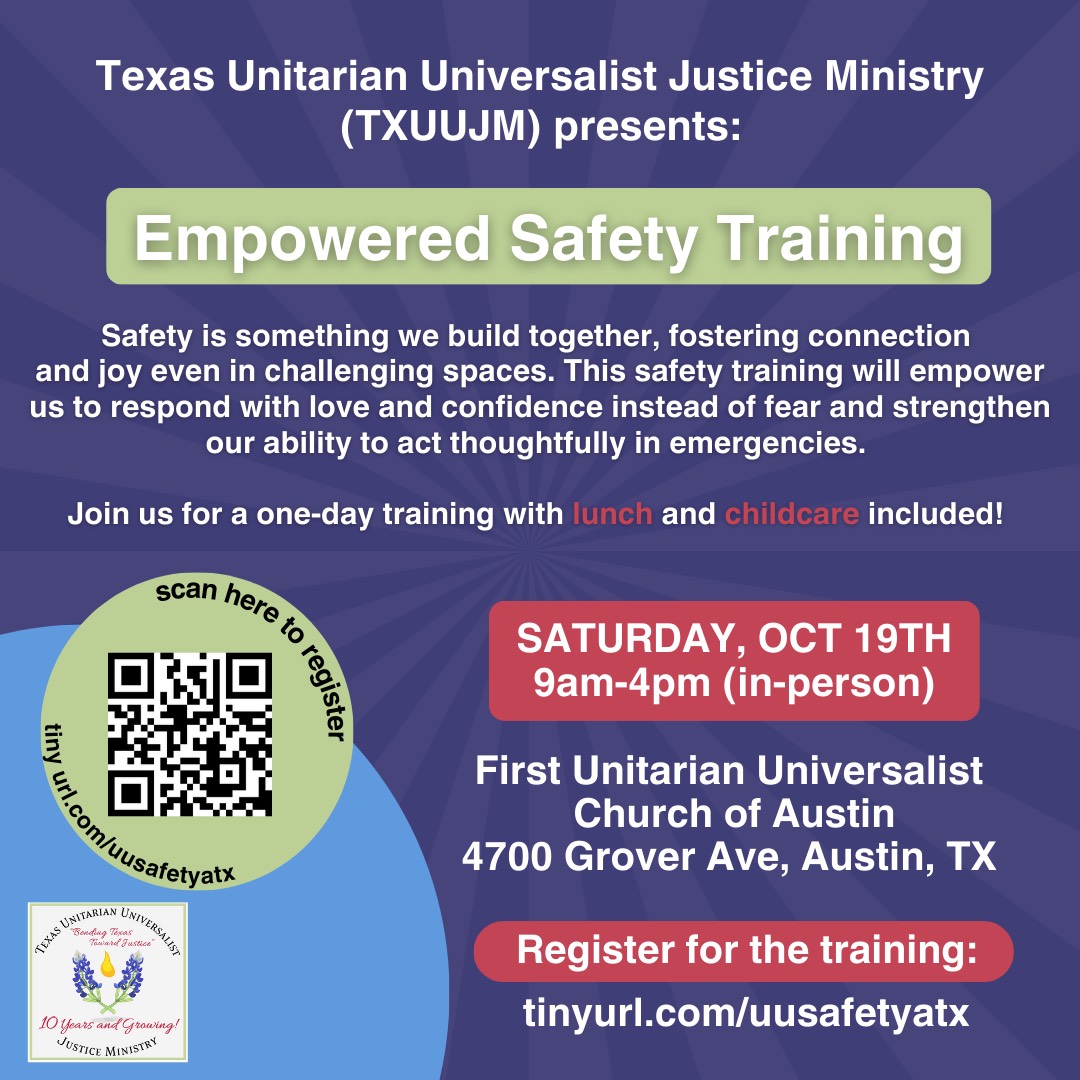SWUUWCon 2025 at Houston Hilton NASA

SWUUWCon25
March 21-23, 2025
“Sacred Spaces Sacred Places”
Registration is open!
Join us for the SouthWest UU Women annual conference at the Houston Hilton NASA in Clear Lake, Texas.
The conference begins with an opening on Friday and continues through Sunday. Your registration includes access to all the workshops and vendors, and lunch and dinner on Saturday.
There are twelve fascinating workshops which will address our Sacred Spaces and Sacred Places in a variety of ways. Workshops will illustrate spiritual connections to the sacred within and around us through appreciation of the universe, of nature, of pilgrimages, of futuristic tools, and of artistic perspectives. Small group ministries and social justice initiatives will show ways to appreciate and enhance the sacred spaces in our lives.
With so many interesting workshops, you will have difficulty deciding on just three! Space is limited, so make sure to register early to be assigned to your favorite workshop.
Do you like to shop? We will have your favorite vendors back this year, as well as new local talent.
After a Gala Saturday dinner, enjoy dancing and singing to music provided by a professional DJ – who also enjoys facilitating karaoke.
Registration is open until March 7, 2025 at $250.
Rooms for the Hilton SWUUW Conference Block can be reserved now. The cost is reasonable: $139/night, taxes to be paid when you check into the Houston Hilton NASA Hotel. Reserve Here.
Celeste Kennedy,
SWUUW 2024-25 Board President
SWUUW is a non-profit organization that supports social justice issues, leadership development and learning; explores feminist theology, promotes friendships and celebrates the diversities that make us unique women on our individual spiritual paths.
Register at https://swuuw.org/register/
Workshops: https://swuuw.org/

The Keynote Speaker will be Catherine Vance, Intern Minister at Galveston Fellowship. Catherine is also an author. Her book “Mountains Under Her Feet”, recounts the stories of strong women over generations in Tennessee.
Our Chaplain will be the Rev. Katie McQuage-Loukas the newly called and settled minister of Bay Area Unitarian Universalist Church.
Joy for Justice
Another legislative session starts in January 2025 and it can be hard for UUs to get through this season without feeling discouraged. Yet one of the ways we give up our power is by letting hopeless take over. Join UU seminary student AJ Juraska on Sunday, January 12th from 1 – 2:30 p.m. at the church in room 13 to learn ways to not only survive but thrive while doing justice work. If you are burnt out or worried you will be, this workshop is for you! Register in Church Center to join us!
January Monthly Service Offering- TXUUJM

The Texas Unitarian Universalist Justice Ministry (TXUUJM) is our UU state action network, which brings 40 UU congregations and justice partners together from around the state, online and in person, to bring UU values and voices to the public square. We know Texas needs that — and we know what happens in Texas doesn’t just stay in Texas either! TXUUJM is a 501(c)(3) nonprofit led by Executive Director Rev. Erin Walter and also including Intern Minister Bis Thornton, a First UU member.
Since 2012, TXUUJM has also been organizing and educating UUs around crucial issues, from trans inclusion to democracy, all year long. TXUUJM is part of the nationwide Coalition of UU State Action Networks (CUUSAN) and the Teach the Truth Coalition, which advocates from schools board to the State Board of Education to the Legislature for accurate and inclusive curriculum, public school funding, and the separation of church and state.
Every Thursday night in Zoom Action Hour, TXUUJM members take action together around climate, immigration, the death penalty, and more.
TXUUJM is a grassroots justice nonprofit made possible by people power and the generosity of congregational dues and individual donations. By sharing the plate, we join with fellow UUs around the state in the lifelong work of Bending Texas Toward Justice.
At First UU, we are the justice ministry — a founding congregation and the largest UU congregation in the capital city. TXUUJM cannot do this work without us – without you. Thank you for making First UU’s generous support of TXUUJM possible!
January Public Affairs Forum
James Harrington – Civil Rights Attorney
Public Affairs Forum – January 12, 2025
Nominations for 2025 Monthly Special Offerings
One important way First UU lives its mission to do justice is through our Monthly Special Offerings. These offerings are collected during services on the second Sunday of the month. Each member of First UU may nominate one nonprofit social justice organization that promotes our UU values in the larger community.
To nominate an organization, please complete the form and return it to us at the Social Action table on Sunday November 28 or December 1, or by email to David Overton at info@austinuu.org. Nomination forms must be received by Thursday, December 5, 2024 – no exceptions.
Please fill out the Nomination form here.
If you need further information, please contact David Overton at info@austinuu.org.
Next Path to Membership Class

Join Our Regular Monthly Climate Crisis Meeting
The First UU Green Sanctuary Committee will join the Sierra Club Climate Crisis Committee on Tuesday, November 5th, at its regular monthly meeting. We will have a potluck, as usual, starting at 6:30 pm. This will be an early election results party for results up to 8:30 pm. This should show the current returns and trends for most of the eastern states and for much of the Central Time Zone states. We will also see the very early results from the Mountain Time Zone. We will celebrate our volunteer election work and play a few election/party games. Victoria will also present a few tips on handling grief for those whose candidate loses (which you can pass on to your Trump friends).
The presidential race will not be declared Tuesday. Even if someone won in a landslide, they wouldn’t call it until the states in the West closed their polls. Most other close races will not be declared until late that night. But we can see some returns, share some community time, and hopefully have some fun.
Dia de los Muertos Alter Coming to First UU

Expect to see a Dia de los Muertos Altar at First UU in the foyer outside the sanctuary when you arrive for services Sunday, November 3rd, compliments of Austin Sanctuary Network. Some ASN members can’t return to their homeland to honor their ancestors where they were buried to follow the traditions of their communities.
The ceremony will start at 2 p.m. that Sunday to honor loved ones who’ve passed away and UUs are welcome to bring a photo of your loved ones, who you’d like to honor, if you want to join us for the ceremony. ASN will provide simultaneous interpretation in Spanish and English. After the ceremony, we’ll gather in Howson Hall for a potluck of dishes our loved ones enjoyed most during their lives. For more info and to tell us if you plan to attend the ceremony please email Peggy at insideamigos@austinuu.org.
November Monthly Service Offering
UBarU is a Unitarian Universalist Camp and Retreat Center located on 142 rugged acres in what is, again this year, a peaceful and seasonally-wildflower strewn patch of the Texas Hill Country near Kerrville. Since the property was passed on to us by the Quakers, we have sought to fulfill our UBarU Mission “to provide a welcoming, peaceful place to gather for spiritual, educational, and recreational purposes in harmony with our Unitarian Universalist Principles and the Land.” Over the last 20 years, scores of members of this church have joined in Summer youth camps, Deep in the Heart of Texas Women’s Retreat, Heart of Texas Men’s Retreat, Texas Wine – Texas Stars Celebrations, Fiber Arts gatherings, GenderFUUL welcoming retreats, Dark Sky Star Party weekends, contemplative retreats and personal family reunions.

In 2023, we launched a two-year Capital Campaign, Digging Deeper to Reach Higher! Thanks to generous gifts from many of you, we now celebrate raising the needed funds. We successfully completed swimming pool repairs, drilling a new water well, upgrading our Public Water Supply system and building an accessible new two-bedroom cottage with a great porch and view. We so appreciate your financial support!
Our past efforts to be good stewards of the land have benefitted from grants to expand our solar panels, a grant from H-E-B Environmental for a Rainwater Catchment System, expansive seeding of native grasses and wildflowers, and creating an additional firebreak corridor in the east, adjacent to the Meditation Oak. An additional grant from Live Oak UU Endowment created an active bird blind with native plantings and a wildflower pollinator garden. We have hosted a delightful array of birds, including Scrub Jays, Golden-Fronted Woodpeckers, a Great Crested Flycatcher and a Baltimore Oriole! In addition, our remote camera below the pool has captured photos of White-tailed Deer, Red Fox, skunk and raccoon families as well as wild turkeys and Road Runners.
For those of you that have visited UBarU, you know that all activities revolve around the traditional Quaker-style Meeting House and radiate to the decks, the limestone rock pool by the windmill, the Meditation Oak, the two meditative labyrinths and the evening fire circle. We so much look forward to hosting you this coming year. In January, our summer children’s camps will be open for registration and we will have a full calendar of seasonal retreats and dark sky events. Who knows, you might even see the next comet from a porch at UBARU!

This month, UBarU is proud to have been chosen again by you, the members of First UU Austin to receive the Monthly Special Offering. Thank you for your continuing support. For a more detailed Update Letter or information on upcoming programs or the Capital Campaign please visit www.ubaru.org or check out the many photos on the UBarU Facebook page at www.facebook.com/UBarURetreat.
Veganistas Potluck
Want IDEAS for something VEGAN to serve at your holiday meal?
The Veganistas of First UU Austin invite you to A VEGAN PRE-THANKSGIVING POTLUCK DINNER AND RECIPE SWAP
Saturday, November 9th, 6:30 PM in Howson Hall
Bring something festive, or a veganized version of a holiday classic, or your best unique specialty.
Submit YOUR vegan holiday recipe or find ideas at Veganistas.org.
Bring a VEGAN dish that serves 8. Couples may bring two dishes or one large dish.
ALL DISHES NEED TO BE VEGAN, meaning no animal products at all. (No meat, fish, eggs, or dairy products including no milk, cheese, yogurt or butter, no animal broth, gelatin, or honey. Please check the ingredients of everything used in your dish.) This makes it so everyone in our group, vegans, vegetarians, and omnivores can eat anything at the potluck. It is helpful to bring a list of ingredients or even copies of your recipe! As a courtesy, be prepared to give information about allergens.
For more information, to sign up for the potluck, or to ask questions about veganism visit Veganistas.org
Contact us at info@veganistas.org Letting us know that you plan to attend gives a good head count. But if you forget to sign up, COME ANYWAY!
Sponsored by the Veganistas of First UU Austin and the Austin Vegan and Vegetarian Association
VEGAN FOR THE ANIMALS, FOR YOUR HEALTH, FOR OUR PLANET
VEGAN FOR THE INTERDEPENDENT WEB OF LIFE, OF WHICH WE ARE ALL A PART.
TXUUJM’s Empowered Safety Training

Join us on Saturday, October 19th at First UU Austin from 8 a.m. – 5:30 p.m. for TXUUJM’s Empowered Safety Training.
Lunch will be provided. Childcare available upon request. Teens are also welcome to attend this workshop with a parent.
From democracy work to campus protests to Sunday mornings in worship, we face questions of how — and what it means — to keep ourselves and our communities safe. Join the Texas Unitarian Universalist Justice Ministry as we deepen our practical and spiritual tools for safety in our congregations, communities, and justice work. In this unique training grounded in UU principles but open to all, you will learn from local and national safety experts about how to respond in a crisis:
- What is an equitable and just definition of community safety, aligned with our values?
- What is needed from UUs, according to community members who face the most risk?
- When faced with creating a critical incident response, based on years of research, in the first few minutes before law enforcement is present, how do we empower ourselves to keep our communities safe?
- Most importantly: how do we make decisions about safety based on our values, and not out of fear?
The training will include a one-day in-person training, as well as two-hour Zoom workshops before the training and after the training, to provide collective grounding and reflection. UUs, partners, and friends are warmly invited, and you are encouraged to register with a group from your congregation or organization, so you may be thought partners in sharing your learning with your wider community after the training.
NOTE: This was a very popular and successful training with our Arizona UU justice network, and we are excited to bring it to Texas with the same facilitators, funded by grants from UU College of Social Justice and the New York State Convention of Universalists.
Reclaiming the Bible: What the Bible Really Says about Being Gay
While Unitarian Universalism comes out of Christianity, many of us have–at best–mixed experiences with the Christian bible. Whether you are bible-curious or concerned about what’s in there, this workshop is for you.
Join UU seminary student AJ Juraska online, Sunday, December 29th from 1 – 3 p.m. to learn tools for understanding the bible from an academic/historical perspective, rather than a “literal” one. We’ll focus on what the bible does–and does not–say about being gay and how to research what bible verses “really” say. A Zoom link will be provided once you register on Church Center.
Stewardship Helpers Needed
First UU’s Mission is Building the Beloved Community. By sharing 60 minutes of your time, you can invite First UU’s members and friends to build a world of justice, compassion, and love. Sixty minutes of your time in the comfort of your own home is a great way to demonstrate your spiritual values. We have opportunities to sign up for writing thank you cards and participating in virtual text banks.
Please share your time with the stewardship team by signing up here.
2025 Pledge Drive
Building the Beloved Community
With love and joy, we invite you to join the 2025 First UU Stewardship Campaign. Commitment Sunday is coming on Sunday, October 13. This is the day that we will ask all members and friends to make their annual pledge to First UU. What is a pledge? Making a pledge simply means declaring how much you expect to contribute to First UU during 2025.
This year, we are striving to make pledging joyful by encouraging positive reasons to give, easy ways to make your pledge, and a churchwide celebration recognizing our congregation’s accomplishments and having some fun.
Join the hundreds of Austin families committed to the spiritual practice of supporting our progressive faith community by pledging on October 13. If you already pledge, we encourage you to increase your support of First UU in 2025. We will then celebrate our commitment to First UU with a party on October 27 from 12:15 – 2. Learn more about pledging and the 2025 Pledge Drive on the Stewardship Webpage.

